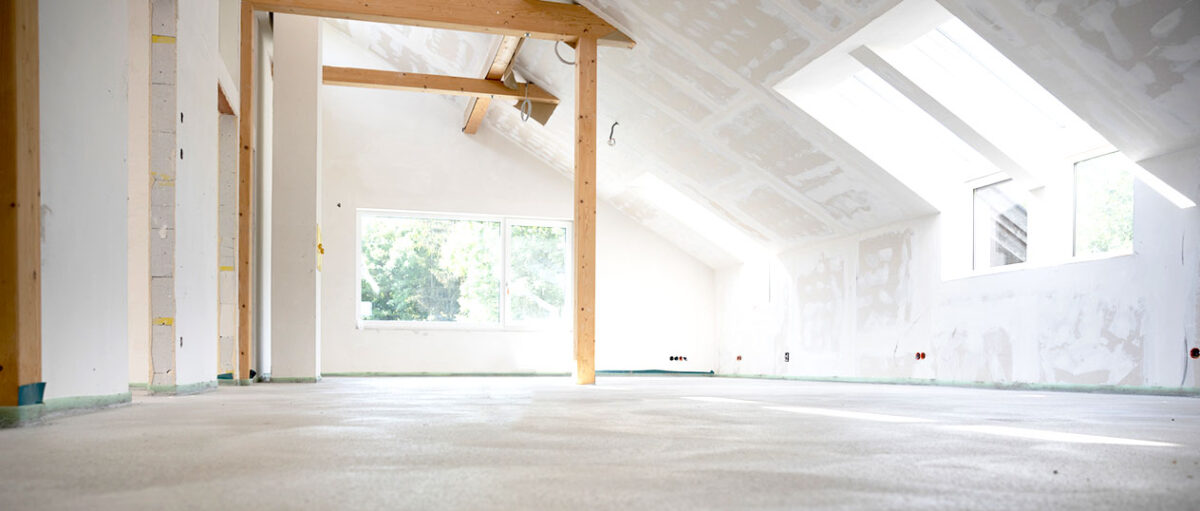
Tight on time? Working with a bottom-dollar budget? Fancy a fixer-upper? If you answer “yes” to any of these questions, buying a house “as-is” might be the right move for you. But before you go searching, read through this blog to make sure you know exactly what buying a house “as-is” means, and the things you should consider well ahead of making an offer.
What does buying a house “as-is” mean?
The answer to this one is fairly simple: Buying a house “as-is” means you’re buying a home that’s sold in its current condition—warts and all.
On the upside, these homes are often priced accordingly, because “as-is” homes are rarely in perfect condition. Sellers realize that there’s some work that needs to be done, and they’re willing to settle for less than they would if the home was turnkey.
The downside, however, is that because “as-is” homes are sold as-is, sellers are stating upfront that they’re not going to make any repairs or touch-ups prior to exchanging the keys. What you see is very much what you get. However, “as-is” isn’t always synonymous with “bad condition.” In fact, while a home’s condition may be one factor that leads to an “as-is” sale, sometimes sellers simply want to sell the property quickly.
Four considerations to make before buying
We won’t call this official mortgage advice, but consider the following four things before putting an offer on an “as-is” house:
Don’t skip the home inspection
These days, buyers are sometimes hesitant to ask for home inspections. After all, a seller’s market led to a surge in cash offers, bidding wars, and waiving contingencies. However, because the market has cooled off a bit and home prices have started to fall (slightly), there’s no need to skip the inspection—especially if you’re buying a property “as-is.”
Said simply, a home is a huge investment, and a thorough inspection can protect that investment or keep you from getting involved in something you’re not financially ready to maintain. An inspection is less about trapping the seller or uncovering “gotchas,” and more about making sure the house is being sold as described, “as-is” or not.
Explore home warranty options
We’ve got in-depth coverage on home warranties in this blog, but here’s the gist: A home warranty is not required, but certainly recommended if you’re buying a home that’s in questionable condition. You can either purchase a plan yourself or ask the seller to provide one, but it’ll usually cover servicing and maintenance for the home’s appliances, plumbing, HVAC systems, roofing, and other parts of the dwelling.
Make sure it meets minimum requirements
Fun fact: Mortgages aren’t just handed out for any property. Many home loans—including most government-backed mortgages—have “standards for livability” that must be met before finalizing the sale, regardless of whether or not the property is being sold “as-is.”
For starters, a home is almost always required to be structurally sound. If it’s got walls, windows, a ceiling, and a roof, you should be in good shape. Some loans may require access to safe drinking water, and USDA loans specifically may require up-to-date electrical systems and functioning heating and air conditioning.
If certain requirements aren’t met, appraisers may decide that repairs must be made before closing, which can delay or derail the process completely. For this reason, cash offers—which require no mortgage—are oftentimes more palatable for “as-is” sellers.
Crunch the numbers
Consider this: When it comes to “as-is” homes, you’re not just buying the house. You’re buying whatever repairs and renovations need to be made to make the house a home. “As-is” properties may require new doors, windows, lights, flooring, and/or pest control (among other things). These seemingly little projects can add up to tens of thousands of dollars quickly.
Sure, you may save on the purchase price, but you’re going to want to make sure you have a mortgage that includes the cost of repairs or have enough cash on hand to get the ball rolling on repairs on day one.
Weighing the pros and cons
Buying a house “as-is” comes with a variety of its own pros and cons.
Pros
Like we said earlier, “as-is” homes are typically priced lower. And because there’s not a lot of “work” to do on the homes before closing, the timeline from offer to closing may be expedited. Lastly, if you’re interested and have the funds available to do so, “as-is” homes offer a nice foundation for flipping.
Cons
When you include the down payment, closing costs, and repairs, you may see higher “all-in” costs. Additionally, not every state requires a “Seller’s Disclosure”, which would identify the home’s issues and alert you to them ahead of time. Finally, as we mentioned earlier, a property’s poor condition may prevent you from qualifying for certain loans.
Now that you know what “as-is” means, are you more or less interested in buying a house in that category? Whenever you’re ready, we’ve got home loan pros who can help.
When it comes to “as-is” homes, you’re not just buying the house. You’re buying whatever repairs and renovations need to be made to make the house a home.
